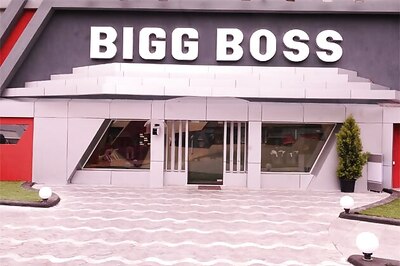
views
Leila
Directors: Deepa Mehta, Shanker Raman and Pawan Kumar
Cast: Huma Qureshi, Rahul Khanna, Siddharth, Arif Zakaria, Seema Biswas, Sanjay Suri
What if you woke up in a world where fresh air and clean water were the biggest luxuries? What if you were forced to submit to a totalitarian government that segregates people based on caste, religion and economic status? What if your child is taken away from you because his parents are from different communities?
Netflix's Leila raises these questions, and more.
The miniseries shows a world where religious fanaticism, extremism and progress in science can make a deadly combination which can place your life completely in control of the state and its beliefs. The medieval, conservative and regressive ideals of this totalitarian government robs the people of a basic human right – the freedom to choose.
Leila is set in the year 2047, in a fictional nation called Aryavarta, which is completely under the control of its leader, Dr Joshi (Sanjay Suri). The motto of this nation is peace by segregation. Cities are divided into sectors with sky-high walls. Each sector has one community, free to practice their beliefs, but not free to build a relationship with anyone from another caste or religion.
Beyond the high walls of Aryavarta are the Doosh, who live in the Basti. They are not allowed inside Aryavarta, have to scrounge for clean water and live in filthy conditions amid huge piles of garbage. A constant cloud of haze hangs on Aryavarta, a sign of extreme pollution. The clouds shower black droplets of rain.
Shalini Pathak (Huma Qureshi), a member of the topmost strata, watches her life change overnight as her Muslim husband (Rahul Khanna) is lynched in their own home and her daughter is snatched from her because she is of mixed blood. Thus begins Shalini's journey of bondage, struggle and protest as she sets out to look for her daughter and ends up joining the rebels against the totalitarian government.
What the series lacks in terms of pace and thrill, more than makes up for in its mise en scène and premise. Huma is thankfully measured in her delivery, considering the camera focuses on her for most part of the series.
In some parts, it feels as if the storytellers focused so much on the ideals and premise of the show, that some areas of progress in science were overlooked. For example, you'd expect the automobile sector to make way more progress in 2047 than just fit cars with a futuristic sound when the doors close. The buses and public transport vehicles look uncomfortably basic.
You will be reminded of Hunger Games and In Time in the economic categorisation in this dystopian world. The scenes of Huma in the women's purification centre - with their uniform clothing, ritualistic life - are visual and thematic reminders of The Handmaid's Tale.
So, this adaptation of Prayaag Akbar's novel of the same name is not entirely unique in its creation of a dystopian world. The context is Indianised, of course, and exaggerated to create an authoritarian set-up.
The scariest part about Leila isn't the oppression and lack of choice in the name of peace and progress, it is the realisation that it's a world not too far from reality. Most of the ideals that this fictional nation propagates are frighteningly familiar. The lines between fiction and reality are often blurred.
The dictatorship is formed because social order has broken down following severe air pollution and depletion of water resources. Which makes Leila a harsh reminder that if consumption of natural resources aren't controlled, if we continue to pollute our nature, then one day we might have to pay a heavy price to have our taps running. Clean water, fresh air and freedom will be luxuries only a few can afford. Leila's world is imaginary, but not impossible. 2047 is just 28 years away.
Rating: 3.5/5
Follow @News18Movies for more




















Comments
0 comment